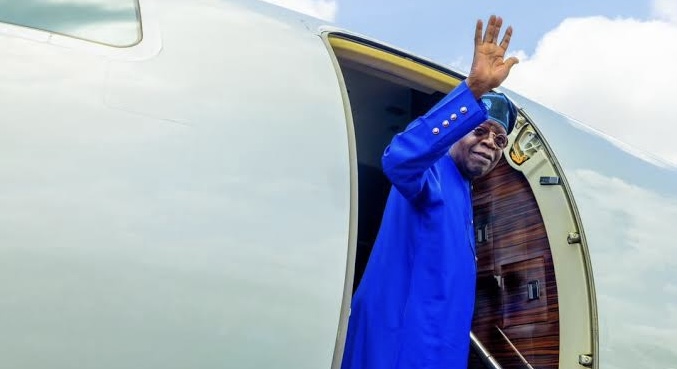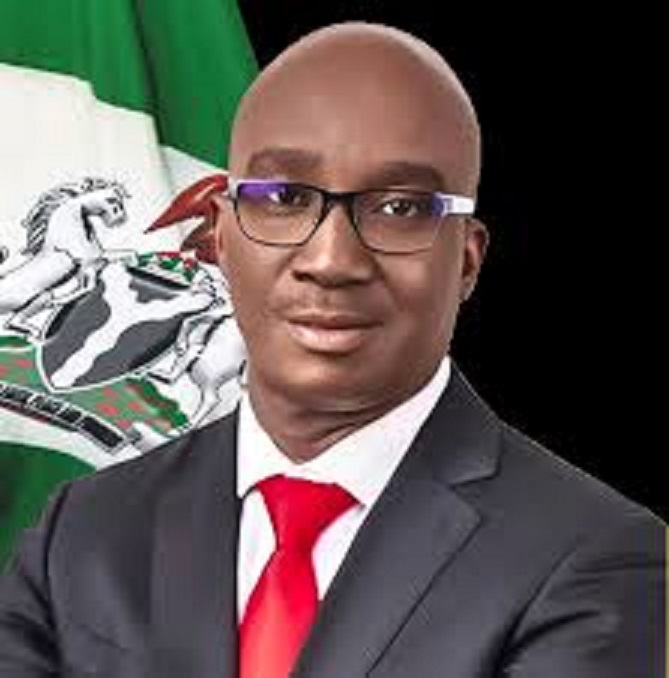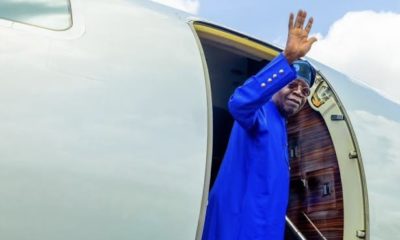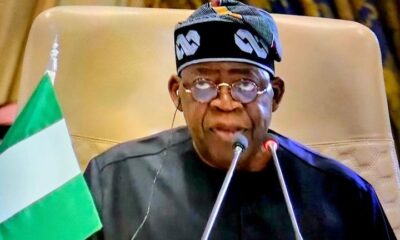NEWS
2024: States Set N15.91trn Budget Benchmark [Breakdown]

In the upcoming year of 2024, the nation’s 36 states, alongside the Federal Capital Territory, have collectively proposed a substantial budget of N15.91 trillion.
President Bola Ahmed Tinubu previously presented a N27.50 trillion budget titled the “Budget of Renewed Hope” to the National Assembly in late November 2023.
Presently, this budget is undergoing evaluation and discussions for final approval.
The proposed budget is aimed at fostering economic growth with a focus on generating employment, maintaining macro-economic stability, creating a more favorable investment climate, enhancing human capital development, and addressing poverty while improving access to social security.
Following this, governors from each state across the federation proceeded to present their respective budgets to their state assemblies.
A breakdown of the states’ budgets by regions indicates that the Southwest took the lead with a budget of N4.20 trillion, trailed by the South South with N3.43 trillion, the South East with N2.29 trillion, the North West with N2.50 trillion, the North Central with N1.89 trillion, and the North East with N1.60 trillion.
Within the total budget of N15.91 trillion, Lagos state emerged at the forefront, allocating N2.25 trillion.
This was followed by Akwa Ibom with N845.63 billion, Rivers with N800.39 billion, Delta with N724.90 billion, Ogun with N703.03 billion, Imo with N592.23 billion, Abia with N567.20 billion, Bayelsa with N480.99 billion, Enugu with N521.56 billion, and Anambra with N410.10 billion.
Niger state took the lead among other northern states with a budget of N613.27 billion, followed by Kaduna state with a budget of N458.27 billion. Following closely was Katsina with a budget of N454.31 billion.
Other states include Oyo with N434.22 billion, Zamfara with 423.52 billion, Ondo with N384.53 billion, Kano with N350.20 billion, Borno with N340.62 billion, Edo with N325.30 billion, Taraba with N311.39 billion, Bauchi with N300.22 billion, Jigawa with N298.14 billion, Kwara with N286.40 billion, Plateau with N295.43 billion, and Osun with N273.91 billion.
Kogi state unveiled a budget of ₦258.28 billion, which will be managed by the incoming governor following the departure of Governor Yahaya Bello in February 2024, concluding his two terms of four years in office.
Sokoto followed with a N270.1 billion budget, trailed by Kebbi with N250.13 billion, Cross River with N250 billion, Adamawa with N225.89 billion, Benue with N225.73 billion, Yobe with N217.00 billion, Gombe with N207.75 billion, Ebonyi with N202.13 billion, and Nasarawa with N199.88 billion.
Ekiti state presented the lowest budget of N159.57 billion.
Previously, Economic Confidential, a PR Nigeria subsidiary, identified Lagos, Ogun, Rivers, Kaduna, Kwara, Oyo, and Edo as the most financially robust states in Nigeria for 2022.
Zekeri Idakwo, the Assistant Editor of Economic Confidential, revealed this information during a press briefing and the unveiling of the 2022 Annual States Viability Index Report in Abuja.
He mentioned that the report was assembled using data released by the Nigerian Bureau of Statistics and the Federal Account Allocation Committee.
NEWS
Tinubu To Attend Africa Heads of State Energy Summit In Tanzania

President Bola Ahmed Tinubu will depart Abuja on Sunday, January 26, 2025, to participate in the Africa Heads of State Energy Summit in Dar es Salaam, Tanzania.
The two-day summit, scheduled for January 27-28, 2025, is aimed at advancing “Mission 300,” a pan-African initiative to provide electricity to 300 million people across the continent by 2030.
Hosted by the Tanzanian government in collaboration with the African Development Bank Group and the World Bank, the summit will bring together African leaders, private sector stakeholders, development partners, and civil society organizations.
READ MORE: Tinubu Appoints Ganduje, Ajibola, Others As Heads Of Federal Agencies
The goal is to develop strategies for accelerating energy access in underserved regions, increasing renewable energy adoption, and mobilizing private sector investment.
According to a statement released on Saturday by Bayo Onanuga, Special Adviser to the President, the summit will serve as a platform for sharing expertise, knowledge, and resources to address Africa’s energy challenges.
The first day of the summit will feature ministerial-level discussions, during which participating nations, including Nigeria, will present their national energy strategies, or “compacts,” detailing their plans to achieve universal energy access within five years.
On the second day, African Heads of State will sign the Dar es Salaam Energy Declaration, a unified roadmap for achieving the goals of Mission 300.
President Tinubu is expected to deliver a national statement reaffirming Nigeria’s commitment to universal energy access and its leadership role in the continent’s energy sector.
He will also highlight Nigeria’s ongoing clean energy initiatives and integrated energy delivery strategies aimed at fostering sustainable development across Africa.
Accompanying the president will be key government officials, including Minister of State for Foreign Affairs Ambassador Bianca Odumegwu-Ojukwu, Minister of Power Adebayo Adelabu, and Special Adviser to the President on Energy Olu Verheijen.
President Tinubu is set to return to Abuja immediately after the summit concludes.
NEWS
Italy Collaborates With Edo To Combat Irregular Migration

The menace of illegal migration is getting diplomatic attention from the Italian authorities and the Edo State Government.
The Chief Press Secretary to Edo State Governor, Fred Itua divulged this in a government house statement issued in Benin City on Saturday.
He explained that the Coordinator, Office of the First Lady, Edesili Anani had expressed the readiness of the Governor, Monday Okpebholo-led administration to tackle the menace of irregular migration among youths in the state.
ALSO READ: Terrorism: Police Neutralises ESN Kingpins, Destroys Camps In Imo
It was gathered that Anani made the stance public on Friday in Government House, Benin City, when Dr. Alberto Cilala, a consultant to the European Union and President of Mattei Africa for Humanitarian Aids Initiative in Italy, led a delegation to her office.
Welcoming the delegation, she highlighted the importance of collaboration to address the challenges posed by irregular migration.
The Coordinator expressed her gratitude to the delegation, and emphasized the transformative impact the partnership will bring to Edo State.
In her words, “This initiative will reduce unemployment, create job opportunities, and address human trafficking and irregular migration. It will also enhance education, skills acquisition, agricultural investment, and infrastructural development for our people.”
On his part, Dr. Cilala emphasized that the Mattei Plan would provide valuable skills to Edo State residents, including tailoring, furniture-making, shoemaking, and more.
“The Mattei Plan was launched by the Italian Government with a focus on six key sectors: education and training, health, security, agriculture, and renewable energy. The goal is to promote integrated development and improve living conditions, particularly in rural areas.
“These projects will be fully funded by the Italian Government through the Ministry of Foreign Affairs and Labour,” he stated.
Former Senior Special Assistant to the Edo State Government on Anti-Human Trafficking and Irregular Migration, Solomon Okoduwa, in his remarks, said the Mattei Plan prioritizes practical measures to reduce irregular migration and human trafficking.
“Although nine African countries are involved in this initiative, Edo State is a crucial partner for Italy. This partnership will strengthen bilateral relations under the leadership of His Excellency, Senator Monday Okpebholo,” he said.
Brand Ambassador of the Mattei Plan, Olorogun John Paul, popularly known as Daddy Showkey was at the event and lauded the initiative.
He noted, “This program provides an opportunity for Edo State beneficiaries to gain training in various skills, equipping them for sustainable livelihoods.”
NEWS
JUST IN: Security Beefed Up As Obasa’s Supporters Occupy Speaker’s Lodge

Supporters of the impeached Speaker of the Lagos State House of Assembly, Mudashiru Obasa, on Saturday morning stormed the Speaker’s Lodge located at 47 Joel Ogunnaike Street, GRA Ikeja, Lagos.
The supporters, dressed in pro-Obasa vests and caps, arrived in large numbers at the premises.
According to multiple sources, the group was planning a “heroic welcome” for the former Speaker, who was recently removed from office by a majority of lawmakers in the House.
READ MORE: 9mobile Commends NCC For 50% Tariff Adjustment To Boost Telecom Sector
Obasa, who was out of the country at the time of his impeachment, was replaced by the former deputy speaker, Mojisola Meranda.
Since her emergence as Speaker, Meranda has presided over two sittings, with Obasa absent from both.
The choice of the Speaker’s Lodge as the location for Obasa’s supposed welcome sparked controversy, as he is no longer officially entitled to the property following his removal.
A resident in the area expressed surprise over the situation, saying, “I didn’t expect that the lodge would be opened for them.”
Armed security personnel, including police officers, were deployed to the area to maintain order and prevent any potential disruption.
As of the time of filing this report, Obasa had yet to arrive at the lodge.






















